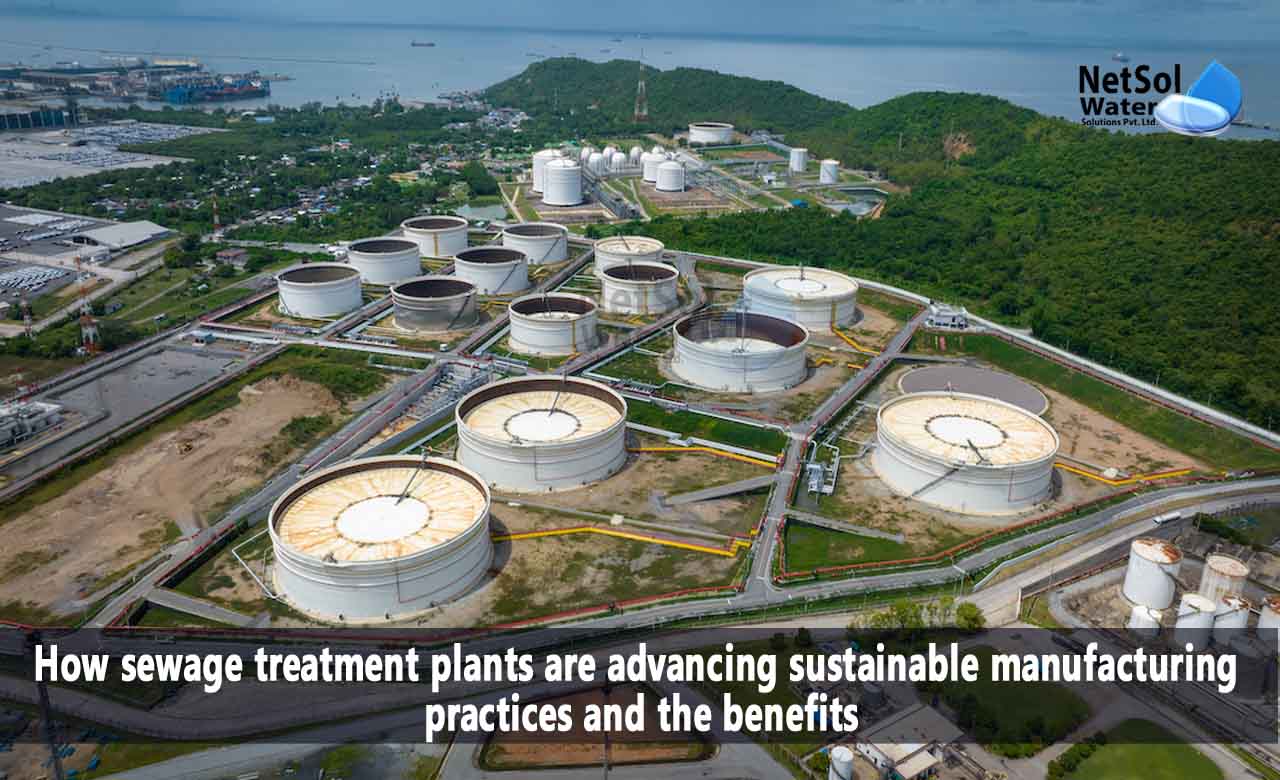How STP Plants are advancing sustainable manufacturing practices?
Sustainable manufacturing practices are gaining momentum across industries as companies recognize the importance of reducing their environmental footprint. One crucial aspect of sustainable manufacturing is the effective management of wastewater generated during production processes. Sewage treatment plants play a pivotal role in treating industrial wastewater, ensuring compliance with regulations, and minimizing the impact on the environment.
In this blog, we will explore how sewage treatment plants are advancing sustainable manufacturing practices and the benefits they offer to businesses and the environment.
1- Compliance with Environmental Regulations:
Manufacturing industries are subject to strict environmental regulations that govern the discharge of wastewater into natural water bodies. Sewage treatment plants provide a reliable solution for meeting these regulations by treating wastewater to remove harmful pollutants and contaminants. By investing in advanced treatment technologies, manufacturers can ensure compliance and avoid penalties while safeguarding the environment.
2- Water Conservation and Reuse:
Water scarcity is a growing concern worldwide, and sustainable manufacturing practices emphasize the efficient use of this precious resource. Sewage treatment plants enable manufacturers to implement water conservation strategies by treating and reusing wastewater within their operations. Treated water can be utilized for non-potable applications such as cooling systems, irrigation, or cleaning processes. By reducing reliance on freshwater sources, manufacturers can contribute to water conservation efforts and mitigate their impact on local water supplies.
3- Energy Generation and Cost Savings:
Innovative sewage treatment technologies offer opportunities for energy generation and cost savings. Anaerobic digestion, for example, breaks down organic waste in wastewater and produces biogas as a byproduct. This biogas can be harnessed as a renewable energy source for heating or electricity generation within the manufacturing facility, reducing reliance on fossil fuels. By utilizing biogas, manufacturers can lower their energy costs, enhance energy efficiency, and reduce greenhouse gas emissions.
4- Nutrient Recovery for Agriculture:
Sewage treatment plants are evolving to focus not only on waste treatment but also on resource recovery. Nutrients such as nitrogen and phosphorus, which are vital for agriculture, can be extracted from wastewater and transformed into valuable fertilizers. By recovering these nutrients, manufacturers can support sustainable agricultural practices and reduce the need for synthetic fertilizers. This approach creates a circular economy where waste is transformed into valuable resources, promoting environmental sustainability and reducing dependency on external inputs.
5- Implementation of Green Technologies:
Advancements in sewage treatment technologies are enabling the implementation of greener and more sustainable solutions. Technologies such as membrane bioreactors, advanced oxidation processes, and electrochemical systems are enhancing treatment efficiency, reducing energy consumption, and improving the quality of treated water. These green technologies contribute to sustainable manufacturing practices by minimizing environmental impact, reducing chemical usage, and optimizing process performance.
6- Public Perception and Brand Image:
Adopting sustainable practices, including the implementation of efficient sewage treatment plants, enhances a company's brand image and reputation. Consumers are increasingly conscious of environmental issues and favor businesses that demonstrate a commitment to sustainability. By investing in wastewater treatment technologies, manufacturers can showcase their environmental responsibility, attract eco-conscious customers, and gain a competitive edge in the market.
Conclusion:
Sewage treatment plants are at the forefront of advancing sustainable manufacturing practices. By treating wastewater effectively, conserving water, recovering resources, generating energy, and implementing green technologies, manufacturers can significantly reduce their environmental footprint. Embracing these practices not only benefits the environment but also improves compliance with regulations, reduces operational costs, and enhances brand image. As we move toward a more sustainable future, sewage treatment plants will continue to play a vital role in supporting the transition to greener and more responsible manufacturing practices.
Netsol Water is Greater Noida-based leading water & wastewater treatment plant manufacturer. We are industry's most demanding company based on client review and work quality. We are known as best commercial RO plant manufacturers, industrial RO plant manufacturer, sewage treatment plant manufacturer, Water Softener Plant Manufacturers and effluent treatment plant manufacturers. Apart from this 24x7 customer support is our USP. Call on +91-9650608473, or write us at enquiry@netsolwater.com for any support, inquiry or product-purchase related query.



